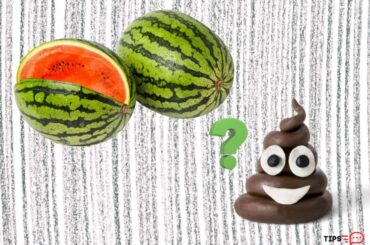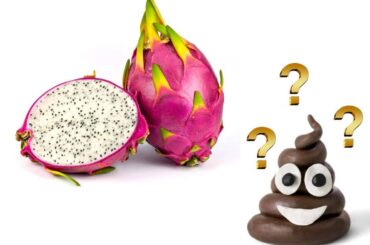Yes, Matcha does indeed contain caffeine, but it offers a unique caffeine experience when compared to coffee. A typical serving of matcha contains approximately 30 milligrams of caffeine per gram, making it a moderate source of caffeine.

Matcha, the vibrant green tea that has taken the world by storm, is celebrated for its unique taste and numerous health benefits. But if you’re someone who’s sensitive to caffeine or simply curious “Does Matcha Contain Caffeine”, this article is for you. In this in-depth exploration, we will dive into the world of matcha and unveil the truth about its caffeine levels.
The Green Elixir: What is Matcha?
1. Matcha’s Origins
Before we get into the caffeine aspect, let’s understand what matcha is. Matcha is a finely ground green tea powder, a traditional Japanese delight derived from shade-grown tea leaves. It is known for its rich, earthy flavor and vibrant green color, making it a favorite among tea enthusiasts and foodies alike.
2. Nutrient-Rich Goodness
Matcha is not just about caffeine; it’s a powerhouse of nutrients. Dive into the world of matcha’s vitamins, minerals, and other beneficial compounds.
3. The Traditional Tea Ceremony
In Japan, matcha plays a central role in their tea culture and is often associated with the traditional Japanese tea ceremony, known as Chanoyu or Sado. This centuries-old practice focuses on the preparation, presentation, and consumption of matcha with utmost precision and grace. It’s a harmonious ritual that allows participants to connect with the aesthetics and philosophy of Japanese culture.
4. Shades of Matcha
Matcha comes in different grades, each with its unique flavor profile and intended use. Ceremonial grade matcha is the highest quality and is reserved for the tea ceremony. It has a sweet, delicate taste. Culinary grade matcha, on the other hand, is used in cooking and has a stronger, slightly bitter flavor. Understanding the differences can enhance your matcha experience.
Does Matcha Contain Caffeine
1. Caffeine in Matcha
One of the most common questions asked about matcha is, “Does it contain caffeine?” The answer is yes, matcha does have caffeine, but in a unique form. A typical serving of matcha contains roughly 30 milligrams of caffeine per gram, making it a moderate caffeine source. However, this caffeine is quite different from what you’d find in a cup of coffee.
2. L-Theanine: The Game Changer
Matcha is renowned for its L-theanine content, an amino acid that helps create a sense of calm alertness. Unlike the caffeine jitters often associated with coffee, the combination of caffeine and L-theanine in matcha provides a sustained, gentle energy boost without the anxiety-inducing side effects.
3. The Caffeine Comparison
To put things into perspective, let’s compare the caffeine content of matcha to other beverages. While an 8-ounce cup of coffee typically contains around 95 milligrams of caffeine, matcha’s caffeine content is significantly lower. However, the energy boost from matcha is often described as more sustained and smooth, with less of the jitteriness that coffee can sometimes bring.
4. Caffeine Sensitivity
If you’re concerned about caffeine sensitivity, it’s essential to know that individual responses to caffeine can vary. Some people may find matcha’s caffeine content more tolerable, thanks to the calming influence of L-theanine. It’s advisable to start with a small serving and observe how your body reacts.

The Matcha Advantage
1. Antioxidant Powerhouse
Matcha is brimming with antioxidants, such as catechins, which help combat oxidative stress and reduce the risk of chronic diseases. This, combined with the caffeine-L-theanine duo, makes matcha a potent elixir for enhancing focus and productivity.
2. Boosted Metabolism
The caffeine in matcha can aid in increasing metabolic rate, promoting fat oxidation, and potentially aiding in weight management. It’s no wonder that matcha is often included in the diet plans of fitness enthusiasts.
3. Cognitive Benefits
The combination of caffeine and L-theanine in matcha offers unique cognitive benefits. L-theanine promotes relaxation without drowsiness, which can result in improved concentration and mental clarity. This is why matcha is often touted as a natural nootropic, enhancing brain function.
4. Detoxification
Matcha’s vibrant green color is a testament to its high chlorophyll content. Chlorophyll is known for its detoxifying properties, helping the body rid itself of harmful toxins and heavy metals. Regular consumption of matcha can support your body’s natural detoxification processes.
5. Calorie-Free Indulgence
For those who are mindful of their calorie intake, matcha is a guilt-free pleasure. It’s virtually calorie-free, making it an ideal choice for weight-conscious individuals looking to satisfy their cravings without compromising their dietary goals.

Enjoying Your Matcha
1. Traditional Brewing
Discover the traditional method of brewing matcha, and savor the rich, authentic flavor.
2. Creative Culinary Uses
Explore how you can incorporate matcha into various recipes, from lattes to desserts, and enjoy its unique taste in diverse culinary creations.
3. The Versatile Ingredient
Matcha isn’t limited to just tea. Its vibrant color and earthy taste make it a versatile ingredient in the culinary world. You can use it to create matcha-flavored desserts, smoothie bowls, and even savory dishes like matcha-infused noodles or sauces. The possibilities are endless.
4. Experimenting with Matcha
Whether you’re a seasoned matcha enthusiast or a beginner, experimenting with matcha recipes can be an enjoyable culinary adventure. Try making matcha ice cream, matcha mochi, or even matcha-infused cocktails. The unique flavor and health benefits of matcha can add a delightful twist to your favorite dishes and drinks.
Conclusion
In conclusion, matcha does contain caffeine, but it offers a unique and balanced caffeine experience when compared to coffee. The addition of L-theanine ensures that you stay alert and focused without the jitters. So, if you’re contemplating whether to include matcha in your daily routine, rest assured that it’s a delightful and healthy choice. Enjoy the taste, reap the benefits, and embrace the world of matcha with open arms.
Read Next: Does Watermelon Make You Poop? The Right Answer Is Here



